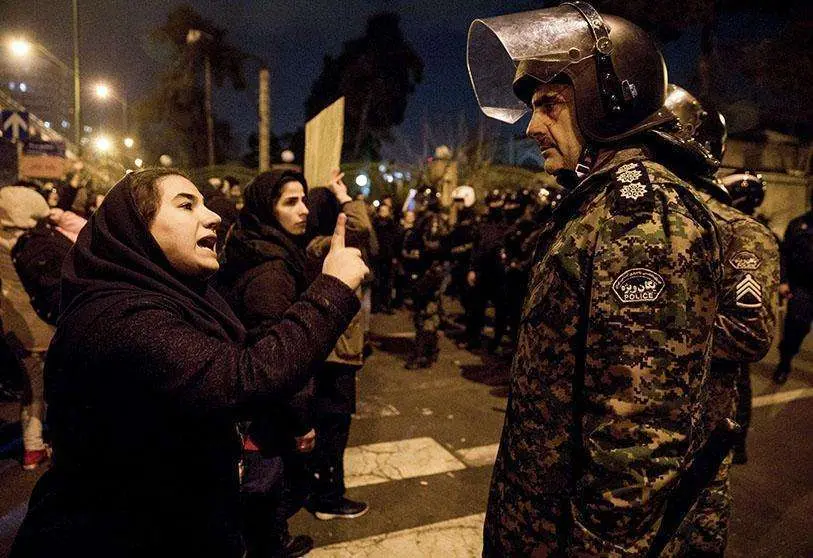People are no longer afraid to speak out

The poet Baktash Abtin, who died in prison in Iran in the cause of freedom, said before his death: "We have enough good artists. What we lack is people who fight. And I would like to sacrifice my sweet soul in my youth". After his death, his fellow prisoners chanted "Down with the dictator".
On the second anniversary of the tragic deaths of the 176 passengers on the Ukrainian airliner, relatives of two of the victims told Ensafnews that the Pashtuns deliberately shot down the plane to avoid US retaliation after firing missiles at a US base in Iraq.
On 28 December, a woman threw down the turban of a mullah and trampled on it. Her video went viral. On the same day, at a rally of retirees, a woman who lost her two sons in the Iran-Iraq war shouted: "We gave our youth to make this country a (very good) country. But you have destroyed everything. Now it is your turn to be destroyed".
These events show that people are no longer afraid to speak out.
Mohammad-Reza Zaeri, a mullah well known to the regime for visiting Paris in the case of the 2018 Villepinte attack with diplomat Assadi, said on Instagram that anger and hatred towards the mullahs has increased to the point where he has received one spit and two insults in ten days.
350 executions in 2021 could not contain the anger of Iranians. Three uprisings broke out in 2021 in Balochistan, Khuzestan and Isfahan almost four months apart.
On 6 January, the statue of Qassem Soleimani, an icon of the Iranian regime's regional influence and terrorism, vilified for the deaths of hundreds of thousands of Syrians and the bloody repression of the Iranian opposition, was set on fire by resistance units within hours of its unveiling.
Resistance units, with women at the forefront, are experiencing an incredible expansion in mullah-occupied Iran, as they did in Nazi-occupied France. They are breaking down the wall of fear.
Sociologically, it is a popular response to Khamenei's policy of building nuclear weapons, which has burdened the economy with $2 billion, and to military interference in the region. This astronomical budget has pushed 60 million Iranians below the poverty line.
The appointment to the presidency of Ebrahim Raisi, who according to Amnesty International and the UN was implicated in the massacre of 30,000 political prisoners in 1988, and the elimination of the so-called reformist opposition faction herald a new era.
The Iranian Supreme Leader brought in Raisi only to contain the coming revolts. The arrival of 30 Pashtun commanders in Raisi's government and governor's posts was only to deal with waves of strong popular protests.
With the dawn of this new era, fear has shifted to power. Nuclear negotiations are no longer a priority for the regime. Deal or no deal, it is proving ineffective in the face of a society on the brink of explosion. Young people and women in particular want to determine their own destiny and aspire to a nuclear-free Iran.
Instead of pursuing a nuclear deal with the mullahs at all costs, the West should accelerate the process of denuclearisation in the Middle East by supporting the democratic aspirations of Iran's youth and women.

